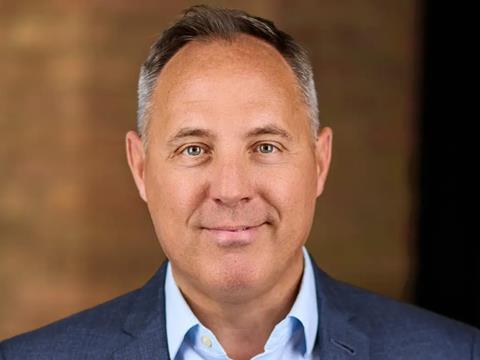
Unilever has underlined its efforts to eliminate virgin plastics and incorporate post-consumer resins in its packaging designs – but calls for developments in recycling infrastructure and harmonized legislation to ensure that such changes are fully beneficial to a circular economy.
Following the release of the Ellen MacArthur Foundation and UNEP’s Global Commitment 2023 Progress Report – and the Five Years In Paper reflecting on the Commitment’s progress and findings since its launch – Unilever’s global head of Packaging, Pablo Costa, has taken part in a Q&A to outline Unilever’s pursuit of ‘a waste-free world’ and ‘superior, sustainable product packaging’.
He states that Unilever is among the top-performing Global Commitment signatories – joining Henkel, Nestlé, Schwarz Group, and others in reducing virgin plastic use by an average of 13%. The proportion of post-consumer resin (PCR) used by the company has increased from 1% to 21% in four years, he continues, with Hellmann’s, Dove, Sunlight, and other Unilever brands all incorporating PCR into their packaging.
Alongside the general estimation that Global Commitment signatories are keeping the equivalent of a barrel of oil in the ground every two seconds by decreasing their reliance on plastics, Unilever anticipates that its efforts will increase collection and recycling rates, keep plastic waste out of the environment, and lower Unilever’s greenhouse gas footprint across the life cycle of its packaging. In one example of its steps towards phasing plastic out of its packaging designs, the company’s Persil, Skip, and OMO laundry capsules are currently being sold in plastic-free cardboard boxes.
Costa notes that the company’s target of 100% recyclable, reusable, or compostable packaging faces challenges in practice. While the company is designing for recycling and achieving ‘technical’ recyclability, shortcomings in local collection, sorting, and processing facilities can affect the outcome – and, he adds, recycling is not a silver bullet when it comes to hard-to-recycle flexible plastic packaging.
In Unilever’s view, ‘bolder innovations’ and ‘new solutions on an even bigger scale’ are needed to break further ground. The company plans on updating its sustainability strategy and commitments in the near future to reflect this.
The company seeks to cut down further on its use of plastic by foregrounding plastic reduction initiatives and investing further in material science. New recyclable and renewable packaging is currently in development at Unilever’s dedicated Packaging R&D Centre.
Costa also expresses his optimism for the unfolding UN Global Plastics Treaty, emphasizing the company’s approval of a legally binding treaty to cut down on the production and use of virgin plastics, especially, as well as harmonize regulation through mandatory targets and rules that apply worldwide.
“More than ever, we need policy to drive systemic change and ensure that all businesses play by the same rules,” Costa concludes. “That includes the remaining 80% of plastic packaging volumes not currently covered by the Global Commitment. After all, industry commitments and voluntary initiatives cannot solve the problem alone.”
The Business Coalition for a Global Plastics Treaty recently expressed its approval of a Global Plastics Treaty while raising its own priority areas in the lead-up to INC-3 in Nairobi. This includes harmonized criteria to identify ‘problematic’ and avoidable plastics for elimination and differentiation between designing for reduction, reuse, and recycling.
Other large organizations have also shared their sustainability strategies. Walmart plans to utilize recyclable paper mailers, right-size cardboard boxes, and enable consumers to opt out of single-use plastic bags in its mission to reduce e-commerce packaging waste; and Amazon is designing for kerbside recycling and rolling out machine learning algorithms and a Ship in Own Container programme to eliminate unnecessary packaging.
If you liked this article, you might also enjoy:
The L’Oréal approach to packaging sustainability
What steps is Apple taking to make its packaging more sustainable?
How did Brazil achieve its 100% aluminium can recycling rate – and can it be replicated in the EU?
Experts have their say on the EU’s Packaging and Packaging Waste Directive revisions
Also, if you’re interested in packaging sustainability, you will want to attend our Sustainable Packaging Summit in Amsterdam on 14-15 November. The Summit brings together leaders and pioneers from across the industry to align strategically, learn, network, and create a critical mass to accelerate change. You can learn more by clicking here, and you can buy a ticket to attend here.














No comments yet